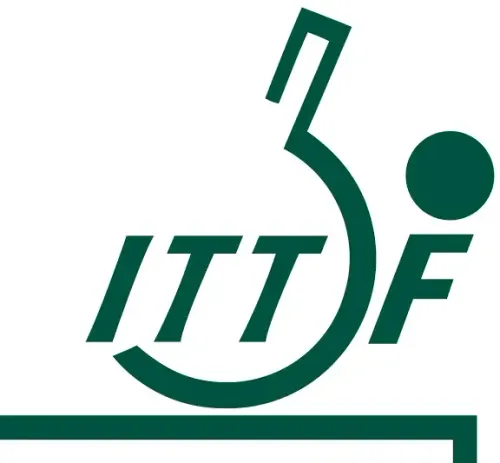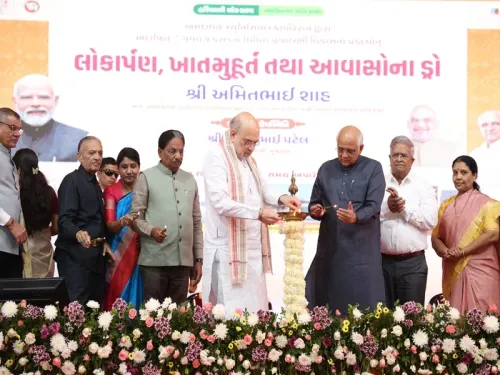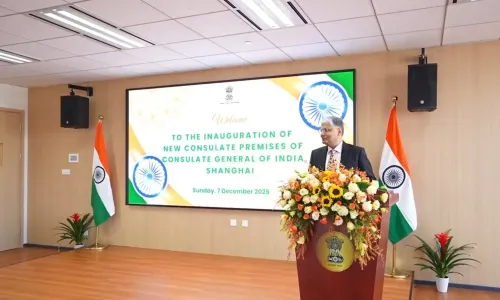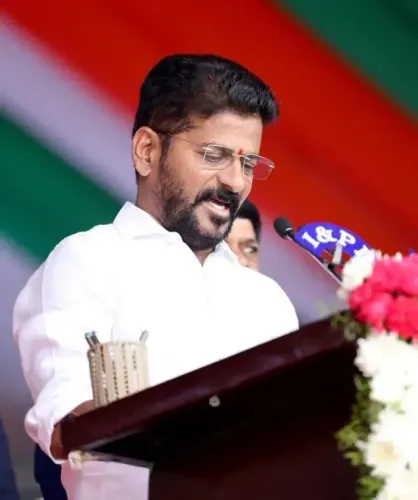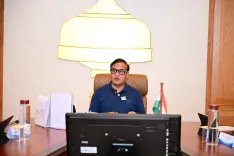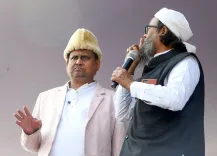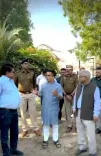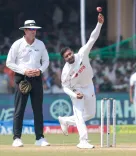Should Political Parties in Haryana Demand Water Share from Punjab?

Synopsis
Key Takeaways
- All-party unity is crucial for advocating Haryana's water rights.
- The Bhakra Beas Management Board (BBMB) plays a significant role in water distribution.
- Concerns about a looming drinking water crisis have been raised.
- Legal and political avenues will be pursued to secure Haryana's interests.
- Historical data shows disparities in water allocation.
Chandigarh, May 3 (NationPress) An all-party gathering, led by Haryana Chief Minister Nayab Singh Saini, convened to address the ongoing water-sharing conflict between Haryana and Punjab. The meeting on Saturday resulted in a collective resolution urging the Punjab government to adhere to the directives of the Bhakra Beas Management Board (BBMB) for the release of water.
The resolution condemned Punjab’s decision to withhold Haryana’s water share as unconstitutional. Leaders emphasized the urgent need to revoke the inhumane and illegal ban on Haryana’s water allocation.
During the session, Chief Secretary Anurag Rastogi presented comprehensive data on water distribution over the last decade.
Concerns were raised regarding the looming drinking water crisis in Haryana, with all participants reaffirming their support for the Haryana government’s quest for its rightful share of water.
Notable attendees included Cabinet Ministers Anil Vij, Ranbir Gangwa, Shyam Singh Rana, Shruti Choudhry, and BJP state president Mohan Lal Badoli. Former Chief Minister Bhupinder Singh Hooda of Congress, state president Rampal Majra from the Indian National Lok Dal (INLD), former Deputy Chief Minister Dushyant Chautala from the Jannayak Janta Party (JJP), and Sushil Gupta from the Aam Aadmi Party were also present.
The leaders collectively stated, “Punjab is disregarding the federal structure. While Haryana has upheld a cooperative stance towards all agreements, Punjab has opted to disregard them. Currently, the Punjab government is engaged in misleading propaganda, obstructing Haryana's drinking water allocation in a bid for political advantage.”
Chief Minister Saini emphasized, “We are resolved to unite in protecting Haryana’s legitimate share of water and to expedite the construction of the Sutlej-Yamuna Link (SYL) canal. We are ready to explore all legal options and undertake political initiatives at both the state and federal levels to defend Haryana's interests.”
He urged residents of both Haryana and Punjab to promote peace and unity, warning them against the misleading narratives propagated by self-serving groups.
All party leaders expressed their unwavering support for the Chief Minister’s resolution, standing alongside the government on this crucial issue.
In a media briefing, Chief Minister Saini condemned the Punjab government for its refusal to build the SYL canal and for unlawfully seizing irrigation water, stressing that Punjab is now unlawfully obstructing drinking water for Haryana’s residents.
He asserted that all options remain viable for securing Haryana's rightful water share. He noted that Punjab has even called for a special Vidhan Sabha session regarding this matter, and the Haryana government is taking these developments seriously. The strategy moving forward, whether it involves approaching the Central government or convening a special Assembly session, will be determined in due course.
Describing water as a national asset, the Chief Minister emphasized that Haryana and Punjab share a fraternal bond. He condemned the Punjab government’s attempts to mislead the public for political gain, insisting that neither state’s populace should suffer over this issue.
In response to a provocative comment from Punjab’s Chief Minister Bhagwant Mann, CM Saini stated that not only the Haryana government but all political leaders unanimously denounce such statements. “We must advance with mutual respect and harmony, rather than political opportunism,” he stated.
The Chief Minister provided factual evidence showing that in previous years of low water levels at the Bhakra Dam, specifically from 2016 to 2019, Haryana received its allocated share without contest. Paradoxically, current water levels are higher than those years, yet Haryana is being denied even its basic requirements. In 2019, when the dam level reached 1,623 feet, 0.553 million acre-feet (MAF) of water was discharged as excess. This indicates that water must be released from the dam to accommodate monsoon rainwater. Annually, approximately 8,500 cusecs of water is typically received, with state demands assessed biweekly by the BBMB’s technical committee.
The Chief Minister revealed that Haryana’s total allocated water share is 12.55 MAF, yet it is only receiving 10.67 MAF. Conversely, Punjab is allocated 14.67 MAF but is utilizing 17.15 MAF. “This disparity clearly demonstrates that Punjab is consuming significantly more water than its allocated share, while Haryana is receiving 17 percent less than its entitlement,” CM Saini concluded.


